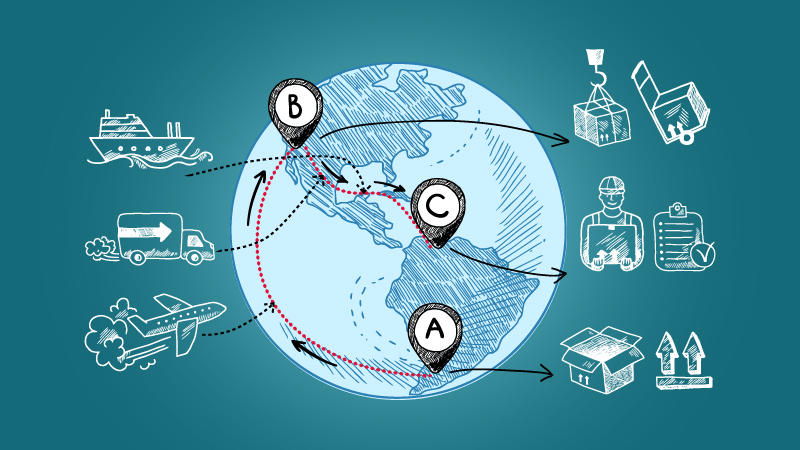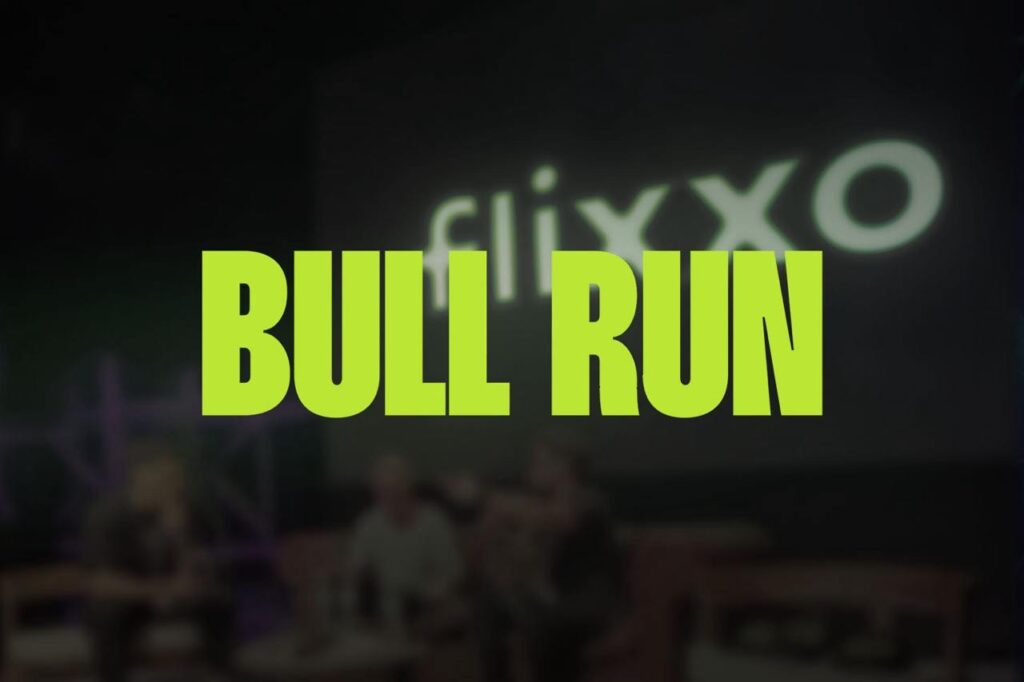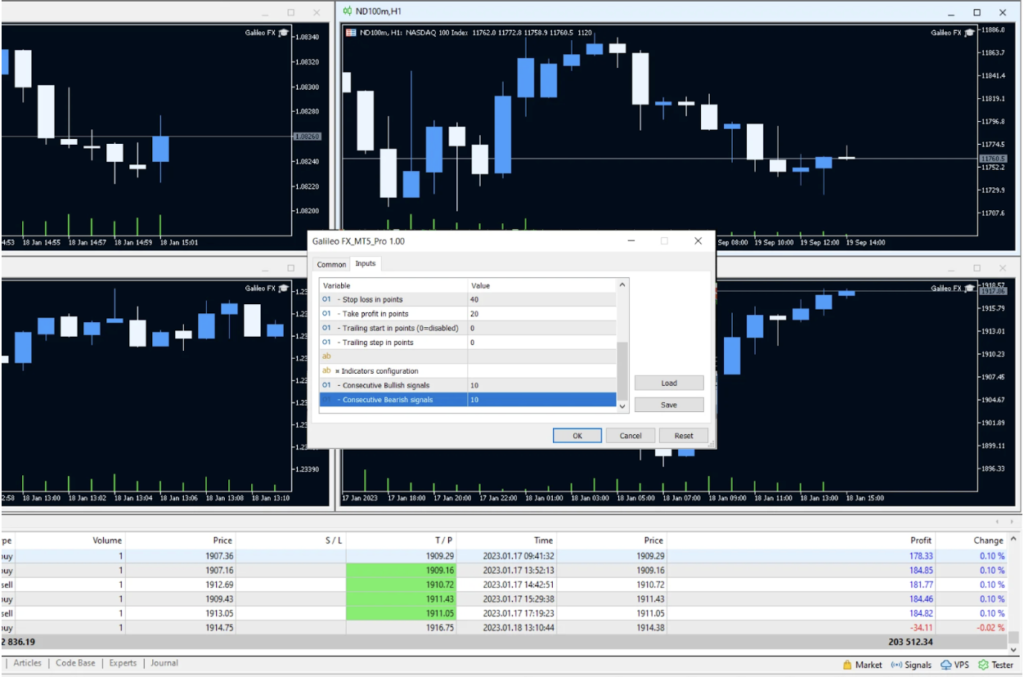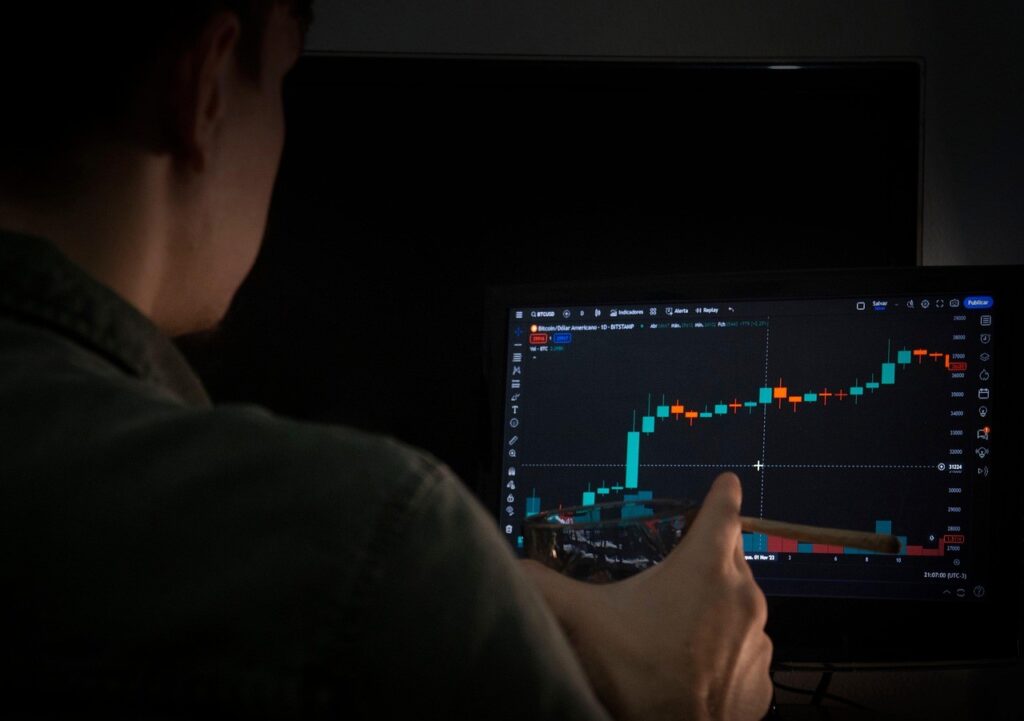Blockchain technology is revolutionizing international trade by providing transparency, traceability, and accountability in supply chains. This article explores how blockchain can be leveraged for sustainable and ethical sourcing, highlighting its benefits for businesses, consumers, and the environment. We delve into subtopics such as traceable supply chains, responsible sourcing, certification verification, and impact measurement.
Introduction
Sustainable and ethical sourcing has gained significant importance in international trade, driven by consumer demand for transparency and responsible business practices. Blockchain technology offers a transformative solution by providing immutable records, traceable supply chains, and certification verification, enabling businesses to demonstrate their commitment to sustainability and ethics.
The Need for Sustainable and Ethical Sourcing
- Environmental Impact: Unsustainable sourcing practices contribute to deforestation, pollution, and depletion of natural resources, necessitating a shift towards more responsible supply chains.
- Ethical Concerns: Labor exploitation, human rights violations, and unethical practices in sourcing undermine social responsibility and require enhanced transparency and accountability.
How Blockchain Enhances Supply Chain Transparency

– Traceable Supply Chains
- Product Traceability: Blockchain enables end-to-end traceability, allowing businesses to track the journey of raw materials and products throughout the supply chain.
- Verification of Origin: Blockchain provides verifiable records of the origin and authenticity of products, ensuring transparency and reducing the risk of counterfeit goods.
– Immutable Records and Transparency
- Tamper-Proof Records: Blockchain’s decentralized and immutable nature ensures that records cannot be altered or tampered with, providing an auditable history of transactions and activities.
- Accessible Information: Blockchain allows authorized stakeholders to access relevant supply chain information, enhancing transparency and fostering trust among participants.
– Real-time Visibility and Accountability
- Real-time Updates: Blockchain-based supply chain platforms enable real-time updates on the movement of goods, ensuring visibility and enabling proactive decision-making.
- Accountability and Responsiveness: Blockchain enhances accountability by attributing actions to specific participants, enabling swift identification of issues and responsible remediation.
Responsible Sourcing and Certification Verification
– Ensuring Compliance with Standards
- Standards Integration: Blockchain can integrate industry-specific standards and certifications, ensuring adherence to sustainability and ethical sourcing criteria.
- Automated Compliance Checks: Smart contracts can automate compliance checks, verifying supplier adherence to standards and triggering alerts for non-compliant activities.
– Supplier Due Diligence
- Transparent Supplier Profiles: Blockchain-based platforms can maintain verified supplier profiles, including information on certifications, responsible practices, and social impact.
- Streamlined Auditing: Blockchain simplifies auditing processes by providing auditors with transparent and immutable records, reducing the need for manual verification.
– Ethical Sourcing Practices
- Worker Welfare and Fair Trade: Blockchain enables the recording of fair labor practices, ensuring that workers are paid fair wages and protected from exploitation.
- Conflict-Free Sourcing: Blockchain can facilitate the tracking of minerals and raw materials to ensure they are sourced from conflict-free regions, promoting peace and stability.
Measuring and Reporting Environmental Impact
– Carbon Footprint Tracking
- Transparent Emissions Data: Blockchain can record and verify carbon emissions data throughout the supply chain, enabling businesses to measure their environmental impact accurately.
- Offset and Mitigation Programs: Blockchain-based platforms can support carbon offset and mitigation programs by transparently tracking and validating the implementation of sustainability initiatives.
– Environmental Certification Verification
- Trustworthy Certifications: Blockchain can store and verify environmental certifications, enabling businesses and consumers to validate claims regarding sustainable practices.
- Consumer Assurance: By providing accessible certification information, blockchain empowers consumers to make informed choices and support environmentally responsible businesses.
– Sustainable Practices Reporting
- Transparent Reporting: Blockchain facilitates transparent reporting of sustainable practices, allowing businesses to demonstrate their environmental stewardship and progress over time.
- Stakeholder Engagement: Blockchain-based platforms can engage stakeholders in sustainability initiatives, fostering collaboration and collective action for a greener future.
Benefits for Businesses, Consumers, and the Environment
– Enhancing Brand Reputation and Consumer Trust
- Differentiation and Competitive Advantage: Businesses that embrace sustainable and ethical sourcing can differentiate themselves in the market, attracting conscious consumers and building trust.
- Transparent Supply Chains: Blockchain’s transparency fosters consumer trust by providing verifiable information about the origin, production processes, and social impact of products.
– Consumer Empowerment and Conscious Purchasing
- Informed Decision-making: Blockchain empowers consumers to make informed choices by providing access to transparent supply chain information and certification verification.
- Supporting Sustainable Practices: Consumers can actively support businesses committed to sustainability and ethics, driving demand for environmentally responsible products.
– Environmental Conservation and Sustainable Development
- Reduced Environmental Footprint: By enabling traceable supply chains, blockchain reduces the risk of illegal logging, unsustainable fishing practices, and other environmentally harmful activities.
- Positive Social Impact: Sustainable and ethical sourcing practices foster social responsibility, protect human rights, and contribute to the overall well-being of communities involved in the supply chain.
Future Outlook and Collaboration
The future of sustainable and ethical sourcing in international trade relies on collaboration among stakeholders. Partnerships between businesses, governments, NGOs, and blockchain developers will drive innovation, standardization, and widespread adoption of blockchain solutions for responsible supply chains.
Supply Chain Risk Management
- Enhanced Risk Visibility: Blockchain provides real-time visibility into supply chain events, enabling businesses to identify and mitigate potential risks such as supplier disruptions, product recalls, and quality issues.
- Resilient Supply Chains: By incorporating blockchain into supply chain risk management strategies, businesses can build more resilient and agile supply chains, minimizing the impact of disruptions on sustainable sourcing efforts.
Social Impact Measurement
- Transparent Social Metrics: Blockchain-based platforms can track and measure social impact indicators such as fair wages, working conditions, community development, and gender equality, providing verifiable data for stakeholders.
- Responsible Supplier Selection: Blockchain can facilitate the evaluation and selection of suppliers based on their social impact performance, encouraging businesses to collaborate with suppliers that align with their sustainability goals.
Circular Economy and Waste Reduction
- Product Life Cycle Tracking: Blockchain enables the tracking of products throughout their entire life cycle, promoting circular economy practices such as recycling, reusing, and remanufacturing.
- Waste Reduction Initiatives: Blockchain-based platforms can incentivize waste reduction by rewarding participants for returning products, recycling materials, or adopting sustainable packaging practices.
Fair Trade and Supply Chain Finance
- Fair Trade Verification: Blockchain can support fair trade initiatives by ensuring transparent and accountable transactions between producers and consumers, promoting fair wages and better livelihoods for farmers and artisans.
- Supply Chain Financing: Blockchain-based supply chain finance solutions can help small-scale producers and suppliers access affordable financing, empowering them to adopt sustainable practices and improve their social and environmental impact.
Collaboration and Industry Standards
- Interoperability and Collaboration: Blockchain fosters collaboration among supply chain stakeholders, enabling the sharing of information, best practices, and sustainability initiatives to drive industry-wide standards and improvements.
- Standardization and Certification Bodies: Blockchain can facilitate the work of standardization and certification organizations by providing a secure and transparent platform for verifying compliance and issuing certifications for sustainable and ethical sourcing.
Transparent Supplier Audits and Compliance
Blockchain technology can facilitate transparent supplier audits and compliance verification. By storing relevant data and documentation on the blockchain, businesses can easily access and verify supplier information, including certifications, responsible sourcing practices, and labor conditions. This transparency ensures that suppliers adhere to ethical and sustainability standards, promoting fair and responsible sourcing practices throughout the supply chain.
Consumer Education and Awareness
Blockchain’s transparency and traceability enable consumers to make informed purchasing decisions. By accessing blockchain-based platforms or scanning QR codes on product packaging, consumers can view detailed information about the product’s origin, manufacturing processes, and environmental and social impact. This increased transparency empowers consumers to support sustainable and ethical brands, creating a demand for responsibly sourced products and encouraging businesses to prioritize sustainability.
Empowering Small and Medium Enterprises (SMEs)
Blockchain can level the playing field for small and medium enterprises (SMEs) in international trade. By utilizing blockchain technology, SMEs can showcase their sustainable and ethical practices, gain visibility in the global market, and establish trust with international partners and consumers. This opens up new opportunities for SMEs to participate in sustainable supply chains, contribute to responsible sourcing efforts, and expand their reach beyond local markets.
Collaboration for Industry-wide Impact
Blockchain’s decentralized nature fosters collaboration among industry players, including businesses, governments, NGOs, and consumers. Through blockchain-based platforms, stakeholders can share information, exchange best practices, and collaborate on sustainability initiatives. This collaboration promotes industry-wide standards, encourages collective action, and drives systemic change towards more sustainable and ethical sourcing practices on a global scale.
Blockchain-enabled Product Authentication
Blockchain technology can combat counterfeiting by enabling product authentication. Unique identifiers, such as serial numbers or QR codes, can be stored on the blockchain, allowing consumers to verify the authenticity of a product before purchase. This verification process helps to eliminate counterfeit goods from the market, protecting consumers, preserving brand reputation, and supporting ethical and responsible sourcing practices.
Continuous Improvement and Impact Assessment
Blockchain’s transparent and immutable nature facilitates continuous improvement and impact assessment in sustainable sourcing. Businesses can record and track their sustainability initiatives and impact metrics on the blockchain, allowing for real-time monitoring and evaluation. This data-driven approach enables businesses to identify areas for improvement, measure their progress, and communicate their sustainability achievements to stakeholders.
In conclusion, leveraging blockchain for sustainable and ethical sourcing in international trade offers a wide range of benefits. From transparent supplier audits and consumer education to empowering SMEs and fostering collaboration, blockchain technology is transforming supply chains into more responsible and sustainable ecosystems. By embracing blockchain, businesses can build trust, drive positive change, and contribute to a more ethical and environmentally conscious global trade landscape.
Conclusion
Blockchain technology is a game-changer in promoting sustainable and ethical sourcing in international trade. By leveraging its features of transparency, traceability, and accountability, blockchain enhances supply chain transparency, facilitates responsible sourcing and certification verification, and enables measurement and reporting of environmental impact. Businesses, consumers, and the environment all benefit from the adoption of blockchain in international trade, fostering a more sustainable and socially conscious global marketplace.















